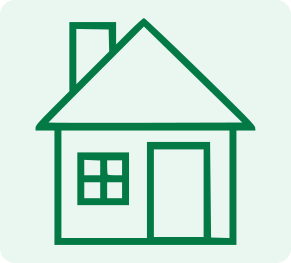Welcome to Treeo!
Caring, compassionate, and collaborative ABA providers serving families in Lake County, Florida
Exceptional Needs Deserve Exceptional Service
Treeo is proud to provide Applied Behavior Analysis (ABA) therapy, a scientifically proven approach that can transform the lives of individuals with Autism Spectrum Disorder (ASD) and other developmental challenges. ABA is more than just therapy; it is an opportunity to create amazing learning experiences that can lead to life-changing outcomes for families.
Our commitment is to work hand-in-hand with you, valuing your family's unique needs and goals. Your child's success is our priority, and with our dedicated team and person-centered approach, we'll help navigate a path with you toward a brighter future, where your child’s progress and growth become achievable milestones.
How ABA Therapy Can Help
-
Functional communication is about teaching children to express basic wants and needs, engage in back-and-forth communication, follow directions, and make simple choices. Mastering these functional communication skills allows children to better interact at home, in school, and in the community.
ABA therapy builds functional communication using techniques like modeling, prompting, reinforcement, visual aids, and voice output devices. The focus is on real-world utility rather than just speech itself. Improving functional communication leads to greater independence and quality of life.
-
ABA therapists use positive, reinforcement-based techniques to reduce problem behaviors. Some strategies include identifying triggers and preventing incidents, teaching replacement skills (like using words instead of hitting), rewarding positive behaviors and ignoring minor incidents, using picture schedules and timers to manage transitions, adjusting the environment to support desired behaviors, and tracking data to monitor progress over time.
The goal is to understand why behaviors occur and make changes to help the child cope while increasing more positive, appropriate behaviors. Reduction of harmful behaviors improves safety, learning, socialization, and quality of life.
-
Academic readiness refers to the skills children need before they can succeed in school. ABA helps establish these prerequisite abilities. Some academic readiness skills include fine motor skills (holding a pencil, using scissors, manipulating objects), attention span (sitting and focusing on tasks for longer periods), following instructions (listening to and carrying out multi-step directions), imitation (observing others and mimicking their actions) visual perception (recognizing letters, shapes, colors, patterns), task completion (independently starting and finishing work), transitions (moving smoothly between activities), and group learning ( participating appropriately in a classroom setting).
ABA develops academic readiness using techniques like task analysis, chaining, reinforcement, and direct instruction. Improving these prerequisite abilities allows children to actively engage in and benefit from classroom learning.
Establishing academic readiness skills is crucial to set children up for future learning. ABA builds a strong foundation to support academic achievement as children enter school settings.
-
Daily living skills are activities and routines that foster independence in everyday life. ABA therapy helps teach daily living skills to children with autism and developmental disabilities. Some examples include self-care (brushing teeth, bathing, dressing, feeding oneself), home skills (making the bed, cleaning up toys, household chores), mealtime skills (setting the table, using utensils, menu planning), time management (following visual schedules and timers), organizational skills (putting items in assigned places), safety skills (crossing the street, stranger danger).
ABA uses techniques like task analysis, chaining, modeling, and reinforcement to break down and teach daily living skills step-by-step. Mastering these skills allows children to be more independent in personal care, contributing around the house, managing time, and being safe.
Daily living skills are functional abilities that lead to real-world independence. Building these skills is a key focus of ABA therapy programs for children with developmental disabilities.
-
Social skills are abilities that allow children to appropriately interact with others. Some examples of social skills that ABA programs target include making eye contact and reading facial expressions, taking turns in games or activities, listening to peers and having back-and-forth conversations, sharing toys or materials with others, playing cooperatively without grabbing items, joining group activities, using manners like saying please and thank you, expressing feelings and emotions, and maintaining appropriate physical distance from others.
ABA uses techniques like modeling, role playing, visual cues, scripts, peer mediation, and social stories to teach social skills. Reinforcing positive social interactions and providing immediate feedback helps shape appropriate social behavior.
Mastering social skills allows children to initiate and sustain positive interactions, make friendships, and integrate into group settings like classrooms. Focusing on social skills improves quality of life and reduces isolation for children with autism.











